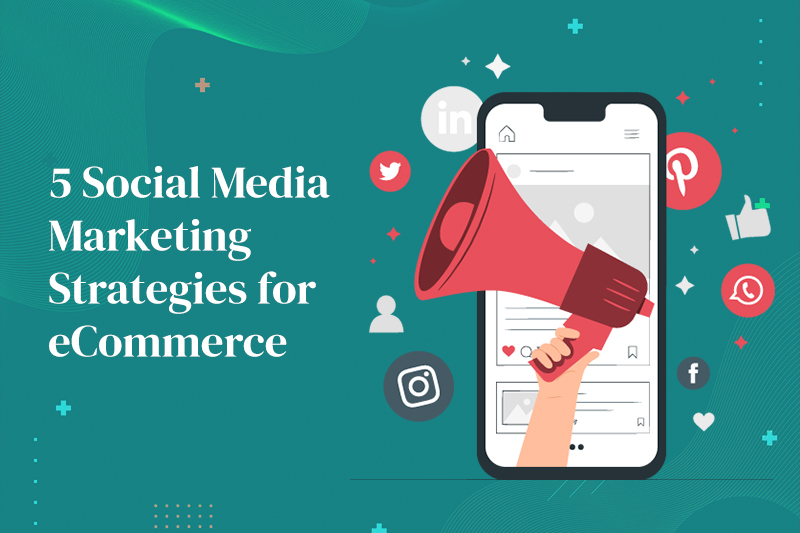Social media has revolutionized the way we use the internet, and how we consume information. Consumers are no longer the silent majority, and media companies are no longer the gatekeepers of information.
Small businesses can now engage in back-and-forth with consumers without traditional media as an intermediary, and this gives the modern eCommerce site an opportunity it’s never had before. Here’s how you can take your eCommerce site to the next level.
Strategy #1 – Understand Why People Use Social Media
A recent study suggests that people use social media to:
- Communicate
- Express themselves
- Pass the time
- Entertain themselves
These are roughly the same reasons that people use the internet in general, except that people do not use social networks for a fifth and very important purpose: information seeking. This is important, because it also means that people are not using social networks to find information about companies, products, or services.
The study concluded that the main reasons people use social networks are to pass the time and to entertain themselves. For this reason, companies should focus most of their social media efforts on using entertainment to build customer retention and acquisition.
Companies can also leverage those who use social media to communicate or express themselves by building an online community to keep conversations going.
Strategy #2 – Build Relationships With Influencers
Since most people use social networks to entertain themselves and a smaller number of people use them to express themselves, it is often these expressive people who are the most influential people online. Many of them also have blogs or personal websites that they further use as an outlet for their expression.
It is these people who you should focus most of your efforts building relationships with. Since it is rather strange for an eCommerce site to try to build a relationship with an influencer, it’s often a better idea to use personal profiles to do the connecting. On Twitter, it’s better to create several individual profiles that link back to the brand account, and use those individual profiles to build relationships.
There is also no reason to confine the discussion to social media. Many influencers have email addresses listed on their blogs so that you can contact them directly. As long as you start the discussion off by offering value (not asking them for something), this is often much easier than you may think.
Once you have built relationships with influencers, getting attention on social networks is relatively easy.
Strategy #3 – Be Shareable
It is unlikely that very many people will voluntarily share product pages on your eCommerce site. They are much more likely to share fun and interesting blog posts, videos, and images. This should reinforce the idea that social media should not be thought of as a sales channel. It is far more useful as a “first touch” channel and as a customer retention channel.
Since it is rare that a social encounter with your brand will coincide with a need for your product, your primary focus should be on brand image: building trust and familiarity so that you are first on the consumer’s mind when the need does arise.
What is shareable?
- Novel information that is interesting, surprising, and unique
- Anything that makes people laugh
- Anything cute or that gives people “warm and fuzzy” feelings
- Beautiful images (these do especially well on Pinterest)
- Posts that reinforce a world view (sometimes this means taking a side)
- Content that comes in bite size chunks that are easy to absorb
Strategy #4 – Go Where the Community is
All too often, businesses get caught up in social media as a place, instead of social media as an idea. The savvy marketer realizes that Facebook is not necessarily the place to focus all of their efforts, even though it is the largest social network. In the post-television world, marketers need to move past thinking about volume, and consider targeting instead.
The first question online marketers should be asking is where their community is. No matter what industry you are in, there is a place online where a conversation is happening about that subject. Your first job is to find that community. It could be a Facebook discussion group, but it could just as easily be a forum or message board. That may sound old fashioned, but if it is where your target audience is, it’s where you should be.
That’s not to say you should neglect a more general audience. A strong online community consists of a hardcore following that often exists in a more obscure place, like a forum, followed by a mainstream audience on a place like Facebook or Twitter.
Your primary goal as an online community builder should be to figure out how to leverage these communities in order to build a hardcore following of your own, which then spills over into the mainstream outlets. This means interlinking all of your various online presences and transforming your main site into a home base for all of them.
Remember, social media is not a place. It is a revolution in the way that online discourse takes place. The most important thing to understand about social media is that it allows two-way communication. If you are making conversations happen, you are succeeding, no matter where that conversation is happening.
Strategy #5 – Understand Conversions Directly From Social Media Rarely Happen
Consumers don’t use social media to interact with you. They use it to entertain themselves and interact with their friends. You don’t want to use social media as your primary means of communication with consumers.
Let me say that again. You don’t want to use social media as your primary communication tool with consumers.
Social media is for casual contact. Social networks are noisy and consumers never see every message sent their way. Networks like Facebook actually filter results based on who and what users interact with the most, and so brands rarely show up prominently in their streams.
The advantage of social media is its ability for certain messages to spread virally. People pay more attention to something that has been shared by their friends than they do to an advertisement. Leverage this fact to build new followers, but transition that following over to email. People don’t necessarily read all their email, but most of them at least see every message in their inbox. This isn’t true for social media.
Again: the advantage of social media is the fact that your followers will share messages with their friends. But ultimately, you want those followers to subscribe to your newsletter, go directly to your site, and see you in channels other than social networks.
Social Media is Old News
If there is one thing to understand about social media in the year ahead, it’s the fact that it is no longer just mainstream, it is old news. Businesses who are involved in social media need to understand that it is not shiny and new anymore, and they can’t succeed just by being there. Many consumers are getting fed up with ads and commercial activity on their social networks, and they have very little tolerance for businesses that don’t “get it.”
Use social media to entertain and build relationships with influencers, and transition that influence over to a channel that you control. Be shareable to expand your reach. Don’t waste time trying to “sell” on social networks.










